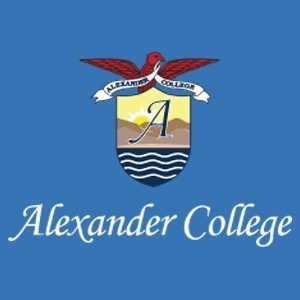Photos of university / #ualberta
The Bachelor of Science in Astrophysics at the University of Alberta offers students a comprehensive and rigorous exploration of the universe, encompassing the fundamental principles of physics and their application to celestial phenomena. This program is designed for students passionate about understanding the origins, evolution, and mechanics of celestial bodies and cosmic events. Through a combination of theoretical coursework, practical laboratory sessions, and observational projects, students develop a strong foundation in areas such as classical and modern physics, mathematics, cosmology, and astronomical techniques. The curriculum includes courses on mechanics, electromagnetism, quantum physics, thermodynamics, and stellar astrophysics, ensuring that graduates are well-equipped with the essential knowledge and skills required for careers in research, industry, or advanced studies. Additionally, students have opportunities to engage in cutting-edge research projects under the guidance of experienced faculty members, often collaborating with observatories and research institutes associated with the university. The program emphasizes critical thinking, problem-solving, and analytical skills, preparing graduates to contribute meaningfully to scientific discoveries and technological innovations related to space and astrophysics. With access to the university’s advanced laboratories and observatories, students gain practical experience in data analysis, instrumentation, and observational techniques. The Bachelor of Science in Astrophysics aims to inspire a passion for exploring the universe while providing a solid educational foundation and research experience that opens pathways to graduate studies or careers in astrophysics, aerospace industries, or science communication. Graduates of this program are equipped to pursue further academic excellence, contribute to scientific advancements, and address some of the most intriguing questions about our universe.
The Astrophysics program at the University of Alberta provides students with a comprehensive foundation in the fundamental principles of astronomy and astrophysics. This program is designed to equip students with the theoretical knowledge and practical skills necessary to explore the universe's phenomena, from the smallest particles to the largest cosmic structures. Through a carefully structured curriculum, students will engage with courses covering classical mechanics, electromagnetism, quantum mechanics, statistical mechanics, and thermodynamics, all essential for understanding the physical processes that govern celestial objects and astrophysical phenomena.
In addition to core physics courses, the program emphasizes specialized topics in astrophysics, including stellar astrophysics, galactic dynamics, cosmology, planetary sciences, and observational techniques. Students will learn how to analyze data from telescopes and space missions, develop computational models, and apply statistical methods to interpret cosmic observations. The program also offers opportunities for hands-on research through laboratory experiments and research projects, enabling students to contribute to active areas of astrophysical research.
Students enrolled in this program will have access to state-of-the-art astronomical observatories, computer labs, and research facilities. They will benefit from the guidance of experienced faculty members who are actively engaged in research across various astrophysical disciplines. The program aims to prepare graduates for careers in research, academia, aerospace industries, and science communication, or for further graduate studies in astrophysics or related fields.
Throughout the program, students are encouraged to participate in seminars, conferences, and astrophysics outreach activities, fostering a vibrant scientific community and developing communication skills vital for professional success. The curriculum is regularly updated to incorporate the latest advancements in astrophysics, ensuring students gain an education that is both current and relevant. Graduates of this program will be well-equipped to analyze complex scientific data, develop innovative research projects, and contribute to our understanding of the universe.
The Bachelor of Science in Astrophysics at the University of Alberta requires students to complete a combination of core courses, supporting science courses, and electives. Students must achieve a minimum of 120 undergraduate credit hours to graduate. The core curriculum typically includes foundational courses in physics and mathematics, such as PHYS 131 (Introduction to Physics I), PHYS 132 (Introduction to Physics II), MATH 175 (Calculus I), and MATH 176 (Calculus II). To develop a strong understanding of astrophysical concepts, students take specialized courses such as PHYS 331 (Electromagnetism), PHYS 333 (Classical Mechanics), and PHYS 430 (Stellar Structure and Evolution). Additionally, courses in astronomy and astrophysics, like ASTRO 251 (Introduction to Astronomy) and ASTRO 309 (Astronomical Observing), are required.
In addition to coursework, students are encouraged to gain practical research experience through laboratory work or research projects, often coordinated with faculty members' ongoing research. Graduate-level electives and seminars provide exposure to current developments in astrophysics. Students must also complete supporting courses in chemistry or computer science, such as CHEM 135 (Introductory Chemistry) or CMS 251 (Introduction to Programming), to enhance their scientific and analytical skills.
To culminate their degree, students may undertake a capstone project or research thesis, integrating their theoretical knowledge with practical research. Throughout the program, students are advised to meet regularly with academic advisors to ensure they are meeting progression milestones. The program emphasizes developing skills in critical thinking, quantitative analysis, and scientific communication essential for careers in research, academia, or industry related to astrophysics. No specific GPA is explicitly stated as a graduation requirement, but maintaining satisfactory academic progress is essential. Students are also encouraged to participate in internships, astronomy outreach, and networking events to broaden their professional experience.
The University of Alberta offers a comprehensive range of financial aid options for students enrolled in its astrophysics undergraduate and graduate programs. For domestic students, scholarships such as the Dean's List Awards, entrance scholarships, and faculty-specific awards are available based on academic achievement and potential. Additionally, the university provides bursaries and need-based financial assistance to support students facing financial challenges. International students pursuing astrophysics studies can access external sponsorships and merit-based scholarships, including specific awards targeted at international scholars. Graduate students enrolled in astrophysics research programs are eligible for research assistantships, which provide a stipend in exchange for research responsibilities. Teaching assistantships are also available, offering financial support while gaining teaching experience. The university encourages students to apply for government loan programs, including the Canada Student Loans Program, which offers low-interest loans for eligible students. Private funding options include external foundations and organizations offering grants and scholarships to students demonstrating outstanding academic and research potential in astrophysics and related fields. The university's financial services office provides personalized guidance to help students navigate available options and apply effectively. Overall, the University of Alberta strives to make astrophysics education accessible by combining institutional, government, and private funding opportunities to support students financially throughout their studies.
The Astrophysics program at the University of Alberta offers students a comprehensive education in the fundamental principles and recent advancements in the field of astrophysics. Designed for students who are passionate about understanding the universe, this program combines rigorous coursework with research opportunities that enable students to explore topics such as stellar evolution, cosmology, planetary systems, and the physical properties of celestial objects. The curriculum emphasizes both theoretical understanding and practical skills, including data analysis, observational techniques, and computational modeling. Students have access to state-of-the-art facilities and laboratories, and are encouraged to participate in faculty-led research projects. The program prepares graduates for careers in research, academia, or industry-related sectors such as aerospace, data science, and scientific communication. Throughout their studies, students can also engage with the university's vibrant research community, attend seminars and conferences, and collaborate with faculty members who are actively involved in cutting-edge astrophysical research. The program is typically offered as a Bachelor of Science with specialization or major options in Astrophysics, allowing students to tailor their studies according to their interests and career goals. Admission requirements include strong grades in mathematics and physics at the high school level or equivalent, and applicants are encouraged to demonstrate a keen interest in science and research. Upon graduation, students will have developed a solid foundation in the physical principles governing astronomical phenomena, as well as the technical skills necessary for data collection and analysis. Graduates are well-equipped to pursue graduate studies or enter professional fields related to space science, astronomy, and physics. The University of Alberta's location offers additional advantages, providing access to astronomical observatories and fostering collaborations with space agencies and research institutions. This combination of academic excellence, research opportunities, and university resources makes the Astrophysics program at the University of Alberta an excellent choice for aspiring astrophysicists.




